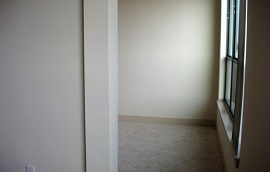If you suffer from seasonal allergies, you are likely to be aware that air quality is a key factor. The allergens in the air can cause itchy eyes, a runny nose, bouts of brutal sneezing and stuffy sinuses. Unfortunately, the problem is not restricted to the outdoor air, and you may find that you get little relief indoors. This is because indoor air often contains as many allergens as the air outside. So, if you want to ease the symptoms of your allergies, soothe asthmatics and promote better health, you need to improve your seasonal air quality.
Simple Tips and Tricks:
The first stages of improving your indoor air quality do not need to be complicated. There are some simple tips and tricks that can have an immediate impact. The first consideration is to vacuum your carpets regularly. You should use a vacuum cleaner fitted with a HEPA filter and allergen suppressing bags. This ensures that any dust and debris that you remove from your carpets and rugs stays contained in your vacuum cleaner.
While you have your vacuum cleaner out, you should also ensure that all of your vents are cleaned. This will not only help to improve your indoor air quality, but it can also be vital maintenance to prolong the lifespan of your HVAC equipment.
As part of your regular cleaning routine, you should also ensure that hard surfaces are dusted regularly, and any bed linens are washed weekly. You should also consider cleaning your drapes and other soft furnishings that may have trapped dust and allergens.
You can also make a number of small purchases to improve your air quality. This includes HEPA filters for your HVAC system. These filters can be installed in air conditioner units and the ventilation system. The higher the rating of the filter, the more allergens and pollutants will be trapped. Another sound investment is an air purifier, which should also have a HEPA filter.
Practices to Improve Air Quality:
In addition to these simple tips and tricks, there are some practices that can help to improve your air quality. This includes having your home tested for carbon monoxide and radon. You should also ensure that your carbon monoxide, radon, and smoke detectors are properly working at all times.
To ensure that the air doesn’t become overly dry and an irritant to sinuses, you should also run a humidifier. A whole house humidifier can be added to your HVAC system to ensure that optimal moisture levels are maintained.
Finally, you should remember to keep your windows and doors closed properly, particularly during the allergy seasons. This will minimize the allergens entering your home.
By taking steps to improve the air quality inside your home, you are also taking control of an aspect of your family’s health. While some of these steps do require an investment, it can be well worth it to improve the indoor air quality. So, remember when you are buying replacement filters, although HEPA filters tend to be more expensive, they will contribute to relief from your allergies.
